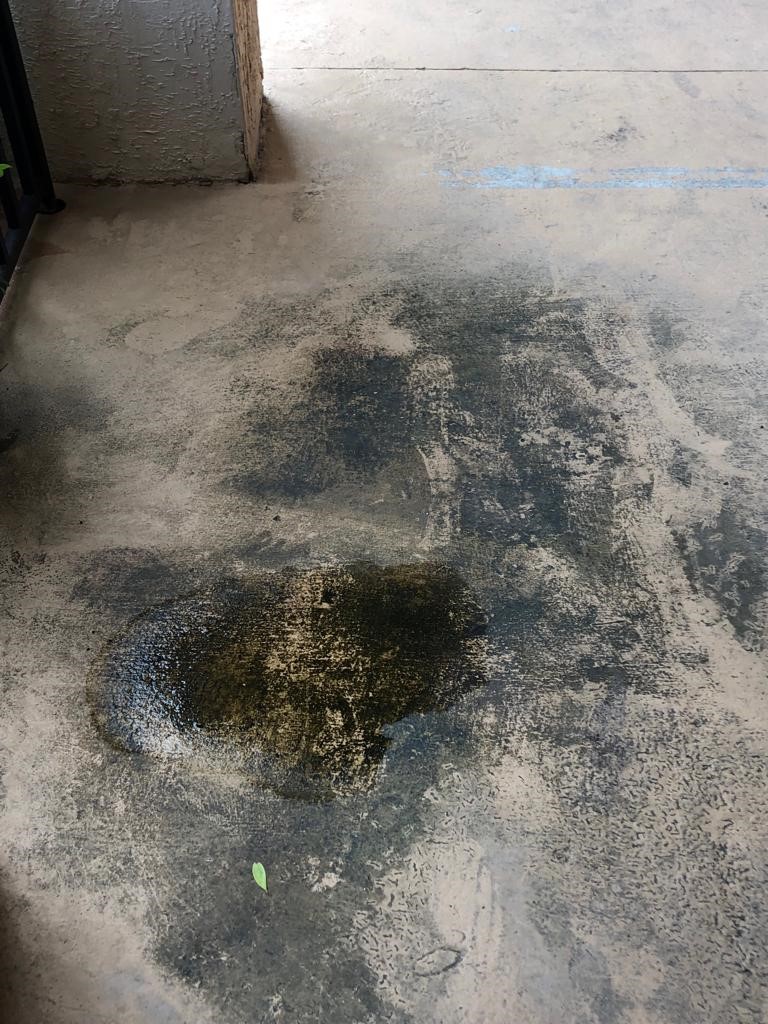 On February 20, 2020, the Third District Court of Appeals reversed the grant of summary judgment in a Miami slip and fall case. In Williams v. Ryta Food Corp., 3rd District Case No. 3D19-0126, the Third District reversed Judge Abby Cynamon’s ruling in the 11th Circuit.
On February 20, 2020, the Third District Court of Appeals reversed the grant of summary judgment in a Miami slip and fall case. In Williams v. Ryta Food Corp., 3rd District Case No. 3D19-0126, the Third District reversed Judge Abby Cynamon’s ruling in the 11th Circuit.
At the trial court level in Miami, Judge Cynamon struck a witness affidavit presented by the Plaintiff in opposition to a motion for summary judgment. Judge Cynamon relied on a case commonly relied upon by Defendants to strike affidavits. That case, Ellison v. Anderson, 74 So. 2d 680, 681 (Fla. 1954), contains a ruling from the Florida Supreme Court that “a party when met by a [m]otion for [s]ummary [j]udgment should not be permitted by his [or her] own affidavit, or by that of another to baldly repudiate his [or her] previous deposition so as to create a jury issue.” Id. And, because Judge Cynamon struck the affidavit, she found there to be no issues as to any material fact regarding actual or constructive notice. Thus, because there was no evidence that the Defendant had actual or constructive knowledge of the purportedly dangerous condition, per Florida Statute 768.0755(1), Judge Cynamon granted Summary Judgment against the Plaintiff.
In the instant matter, the Third DCA noted that, while Ellison is the law, a “party may file a subsequent affidavit for the purpose of explaining testimony given at a prior deposition, provided the explanation is credible and not inconsistent with the previous sworn testimony”. Ouellete v. Patel, 967 So. 2d 1078 (Fla. 2nd DCA 2007). In the instant case, the Third DCA noted that the original witness testimony regarding the substance was that it was clear and that the witness did not know its origin. The subsequent affidavit described the puddle of water as “very long” and noted that there were “several track marks or footprints going in both directions”. The Third DCA pointed out that this did not baldly repudiate the prior testimony. Rather, there were only two prior areas of inquiry and the area that the new affidavit touched upon had not been previously asked or testified to. They also pointed out that there was a video showing that the area of the alleged substance had not been looked at for about 20 minutes. And, in a footnote, the Third DCA mentioned that “For good reason: the judicial landscape is littered with reversals of summary judgments where Ellison has been misapplied” Id.
 Miami Personal Injury Attorney Blog
Miami Personal Injury Attorney Blog



 The Florida Courts seem determined to factually analyze every substance known to man and whether that substance and the specific condition it is in can serve as evidence of constructive notice. Constructive notice is important in slip and fall cases these days because Florida Statute 768.0755 places the burden on the plaintiff to prove that a business establishment had constructive notice. The only other way to have a case, per the statute, is to show that the condition occurred with regularity or that the defendant had actual knowledge of the substance. So, in Florida, we have a body of case law that goes substance by substance and picks apart the substance from a factual basis to determine whether the person who slipped on that substance has a material issue of fact that can be presented to a jury. This case by case analysis goes from fruit to fruit and frozen substance to frozen substance. There seems to be no end to the various foods, chemicals, compounds, molecules, drinks, and items of all kinds that the Florida Courts will look at.
The Florida Courts seem determined to factually analyze every substance known to man and whether that substance and the specific condition it is in can serve as evidence of constructive notice. Constructive notice is important in slip and fall cases these days because Florida Statute 768.0755 places the burden on the plaintiff to prove that a business establishment had constructive notice. The only other way to have a case, per the statute, is to show that the condition occurred with regularity or that the defendant had actual knowledge of the substance. So, in Florida, we have a body of case law that goes substance by substance and picks apart the substance from a factual basis to determine whether the person who slipped on that substance has a material issue of fact that can be presented to a jury. This case by case analysis goes from fruit to fruit and frozen substance to frozen substance. There seems to be no end to the various foods, chemicals, compounds, molecules, drinks, and items of all kinds that the Florida Courts will look at. Recently, in an Orange County personal injury sexual abuse case, the Fifth District Court of Appeal ruled on issues surrounding improper closing arguments and a directed verdict. On January 31, 2019, in the case of Jagger Ferguson v. Orange County, (Florida 5th DCA 2019) Case No. 5D18-2405, they reversed the trial court’s grant of a directed verdict in favor of the Plaintiff and the granting of a mistrial for improper closing arguments.
Recently, in an Orange County personal injury sexual abuse case, the Fifth District Court of Appeal ruled on issues surrounding improper closing arguments and a directed verdict. On January 31, 2019, in the case of Jagger Ferguson v. Orange County, (Florida 5th DCA 2019) Case No. 5D18-2405, they reversed the trial court’s grant of a directed verdict in favor of the Plaintiff and the granting of a mistrial for improper closing arguments. Revel electric mopeds are now available for rent in a specifically designated area of Miami. There are 750 rental mopeds available in Miami and Revel has approximately 30 employees to provide service to the mopeds and for the customers. But what happens when someone is injured in a Revel moped accident? The answer is not entirely clear. That is why the
Revel electric mopeds are now available for rent in a specifically designated area of Miami. There are 750 rental mopeds available in Miami and Revel has approximately 30 employees to provide service to the mopeds and for the customers. But what happens when someone is injured in a Revel moped accident? The answer is not entirely clear. That is why the  Every year, more and more people are deciding to make the move to South Florida. The small strip of coastline positioned between a swamp and the Atlantic Ocean provides year-round summer weather and plenty of sunshine. With such a small area that millions of residents call home, space can be limited. When the demand is high and supply is limited, the prices go up. The South Florida housing market has been well known for being the most expensive in Florida overall.
Every year, more and more people are deciding to make the move to South Florida. The small strip of coastline positioned between a swamp and the Atlantic Ocean provides year-round summer weather and plenty of sunshine. With such a small area that millions of residents call home, space can be limited. When the demand is high and supply is limited, the prices go up. The South Florida housing market has been well known for being the most expensive in Florida overall. The Florida Condominium Act was invoked to protect tenants and consumers from being charged unfairly by property management companies and associations. The act was established in 1963 and has been updated several times since then, with the latest provision being in 1992. When establishing such an Act, the intentions are to keep protections in place and provide a fair marketplace for home buyers. The issue arises when an Act is established but is not enforced. This leads to price gouging and taking advantage of unsuspecting buyers.
The Florida Condominium Act was invoked to protect tenants and consumers from being charged unfairly by property management companies and associations. The act was established in 1963 and has been updated several times since then, with the latest provision being in 1992. When establishing such an Act, the intentions are to keep protections in place and provide a fair marketplace for home buyers. The issue arises when an Act is established but is not enforced. This leads to price gouging and taking advantage of unsuspecting buyers. In the world of grocery store chains, there are many choices available to consumers. Although grocery stores provide the same service by selling food, what causes consumers to choose one store over another? There are many reasons, such as convenience, location, pricing, but the products offered are what distinguishes one store from another. Modern day society has grown in its awareness of nutrition and what ingredients we are feeding our bodies. With the increase in awareness, came the diversity in nutritional diets.
In the world of grocery store chains, there are many choices available to consumers. Although grocery stores provide the same service by selling food, what causes consumers to choose one store over another? There are many reasons, such as convenience, location, pricing, but the products offered are what distinguishes one store from another. Modern day society has grown in its awareness of nutrition and what ingredients we are feeding our bodies. With the increase in awareness, came the diversity in nutritional diets. When it comes to home improvement and contractor supplies, the first name that comes to mind is the Home Depot. This company has dominated the market of home improvement superstores for nearly 30 years now and currently has over 2,200 locations across North America. In order to stay at the top of the market for so long, a company must make many business decisions to keep up with the times and consumer needs.
When it comes to home improvement and contractor supplies, the first name that comes to mind is the Home Depot. This company has dominated the market of home improvement superstores for nearly 30 years now and currently has over 2,200 locations across North America. In order to stay at the top of the market for so long, a company must make many business decisions to keep up with the times and consumer needs. As our world advances technologically, all forms of business continue to evolve in order to keep up with the changing of times. Such as food delivery services, which have become a staple for convenience in our daily lives. There was a time when it seemed the only food options for quick convenience or delivery were either pizza, Chinese take-out or fast food. Then restaurants began offering take-out services, which grew to curbside pickup, and now most of your favorite restaurants are available for delivery via the many companies that offer food delivery services for a fee. With this type of convenience society has become accustomed to, other food industries needed to find a way to provide similar options for their customers. This gave way to major grocery store chains offering online ordering with curbside pickup, and now their latest venture in convenience is grocery delivery services.
As our world advances technologically, all forms of business continue to evolve in order to keep up with the changing of times. Such as food delivery services, which have become a staple for convenience in our daily lives. There was a time when it seemed the only food options for quick convenience or delivery were either pizza, Chinese take-out or fast food. Then restaurants began offering take-out services, which grew to curbside pickup, and now most of your favorite restaurants are available for delivery via the many companies that offer food delivery services for a fee. With this type of convenience society has become accustomed to, other food industries needed to find a way to provide similar options for their customers. This gave way to major grocery store chains offering online ordering with curbside pickup, and now their latest venture in convenience is grocery delivery services. Turo and Getaround are the latest entries into the transportation landscape of South Florida. Think of it as an “Airbnb for cars”. It is also commonly referred to as the “car sharing” industry. Unlike Uber or Lyft, which are “ride-sharing”, car sharing companies such as Getaround and Turo offer to rent you someone’s car. The car owners place their vehicle for rent by the hour or by the day or week on the car sharing company app. But as with all vehicles, especially in Florida, the question ultimately becomes who will pay for injuries and damages in an accident caused by a Turo or Getaround driver and vehicle. That is where the
Turo and Getaround are the latest entries into the transportation landscape of South Florida. Think of it as an “Airbnb for cars”. It is also commonly referred to as the “car sharing” industry. Unlike Uber or Lyft, which are “ride-sharing”, car sharing companies such as Getaround and Turo offer to rent you someone’s car. The car owners place their vehicle for rent by the hour or by the day or week on the car sharing company app. But as with all vehicles, especially in Florida, the question ultimately becomes who will pay for injuries and damages in an accident caused by a Turo or Getaround driver and vehicle. That is where the